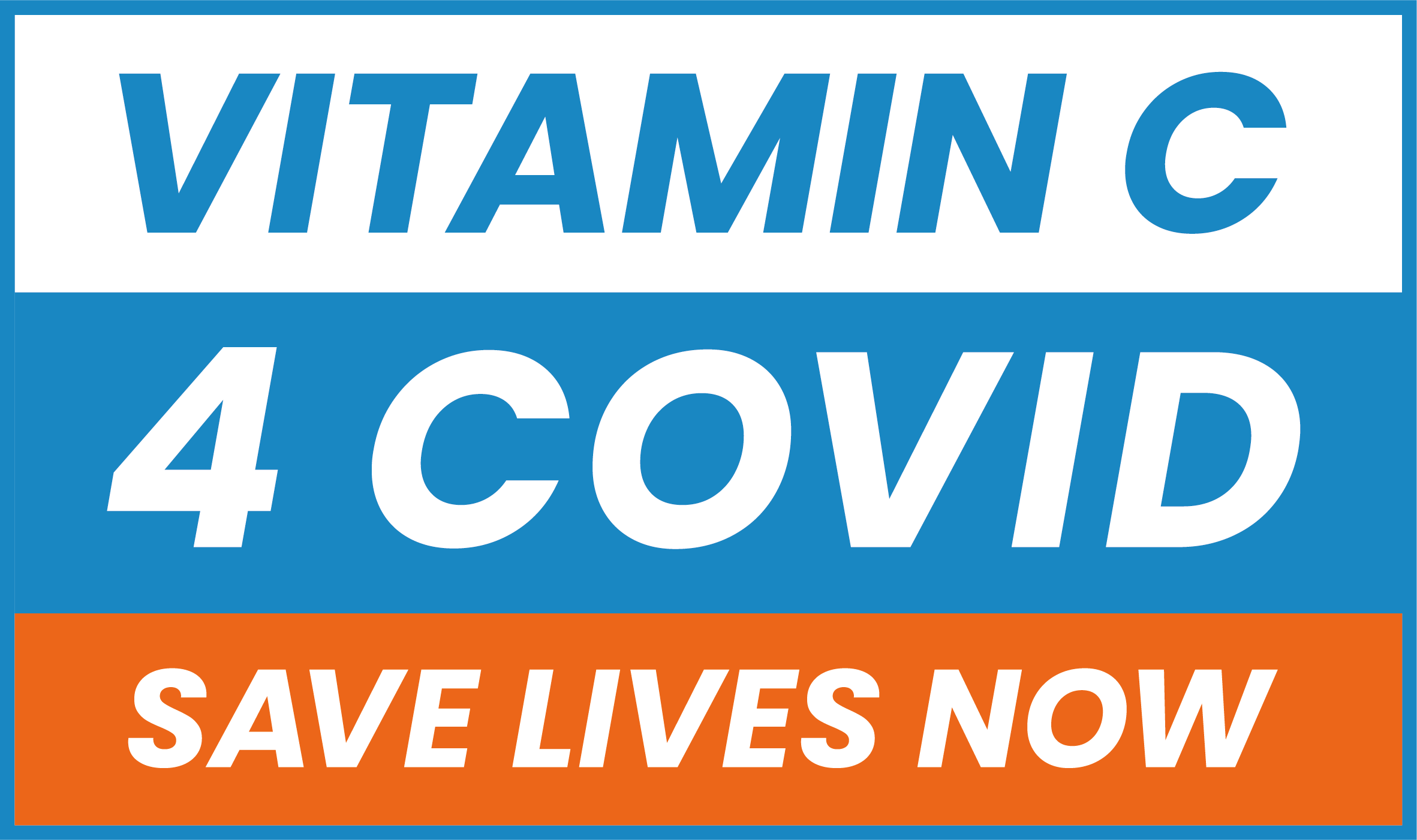Despite the extensive evidence, all detailed in the scientific review published in ‘Nutrients’, supporting the use of vitamin CWhat it does: Strengthens immune system – fights infections. Makes collagen, keeping bones, skin and joints firm and strong. Antioxidant, detoxifying pollutants and protecting against… in relation to COVID, details about its benefits are still being classified as ‘false information’. It is not yet recommended by governments and rarely prescribed by doctors.
‘This is a tragedy’, says campaign director and nutrition expert Patrick Holford. ‘Vitamin C can reduce the number of people getting severely infected and dramatically reduce the risk of death in those critically ill in hospitals.
‘It is safer than water, inexpensive and widely available. The appropriate use of vitamin C as early as possible in infection, and in high intravenous doses in ICUs would potentially be a game-changer.
‘At the moment, people who could avoid catching it, or walk out of intensive care, are dying totally unnecessarily. No-one needs to die who doesn’t already have an end-stage disease.’
The campaign is calling for widespread vitamin C testing. By using a simple, inexpensive, urine dip stick, those in vulnerable groups such as care home residents, who account for an estimated 48% of deaths, could be tested quickly and cheaply and high dose vitamin C administered if needed.
According to the UK government’s National Diet and Nutrition Survey 4%, of the population – that is 480,000 people – have blood levels of vitamin C that are so low that they are defined as deficient and are comparable to the levels found in people with scurvy.
One study found that almost half of those living in care homes are deficient.
This is because too often they don’t get enough vitamin C (and other nutrients) from their food and if you have a chronic disease, such as diabetes or heart disease, your body uses up your vitamin C supplies much faster.
‘On top of that viral infections rapidly deplete vitamin C stores. You are not likely to survive an acute infection, such as COVID-19, if you are deficient to start with. And you may be left with long-term symptoms if you are lucky enough to survive.’ says Holford.
VitaminC4covid.com will be raising funds to investigate vitamin C status in care homes and to establish how much older, more vulnerable people need to reduce their risk. The campaign is also seeking funds to run the definitive trial (bringing the results of over 100 previous trials together) on the benefit of vitamin C in reducing the risk of colds.
‘There is so much more we could do’, says Holford. ‘China is already giving high dose vitamin C to hospitalised patients and intravenous vitamin C to the critically ill. They shipped in 50 million 1gram doses into Wuhan on February 2nd and effectively wiped out critical cases within a couple of months.’
There are currently 45 trials registered using vitamin C around the world. The evidence is already considerably more substantial than that for vitamin DWhat it does: Helps maintain strong and healthy bones by retaining calcium. Deficiency Signs: Joint pain or stiffness, backache, tooth decay, muscle cramps, hair loss…., another key COVID -19 defence nutrient which the government is already planning to supply for free,
The aim of the campaign is to get vitamin C taken seriously, both by governments, healthcare systems and individuals around the world. vitaminC4covid.com is calling for the following changes:
- The government and its public health and nutrition agencies to thoroughly assess the evidence and fund studies of this inexpensive and safe nutrient.
- The government, NHS, health care and medical associations to recommend to all citizens to supplement vitamin C during this viral epidemic, based on the available evidence.
- Content on ‘vitamin C for COVID-19 or corona’ no longer being classified as false information in both digital, broadcast and print media.
- GPs, doctors and nutrition practitioners to be allowed and actively encouraged to recommend vitamin C supplementation for anyone with cold symptoms or coronavirus infection to reduce duration and severity of symptoms as an allowable health claim.
- All covid-19 patients to be tested for vitamin C status and treated accordingly.
- Vitamin C to be given to all covid-19 patients as early as possible on hospital admission.
- Intravenous vitamin C to be trialled as a standard adjunctive treatment for all critical covid patients in Intensive Care Units.
‘There is no doubt vitamin C can play an important role in tackling this pandemic, and we are calling on the government and healthcare practitioners to use all the available tools in our arsenal to help people survive COVID-19’ said Holford.
Please add your support to the campaign to ‘put the C in COVID’ by signing the petition at www.vitaminC4covid.com


Comments
Join the Conversation on our Facebook Page